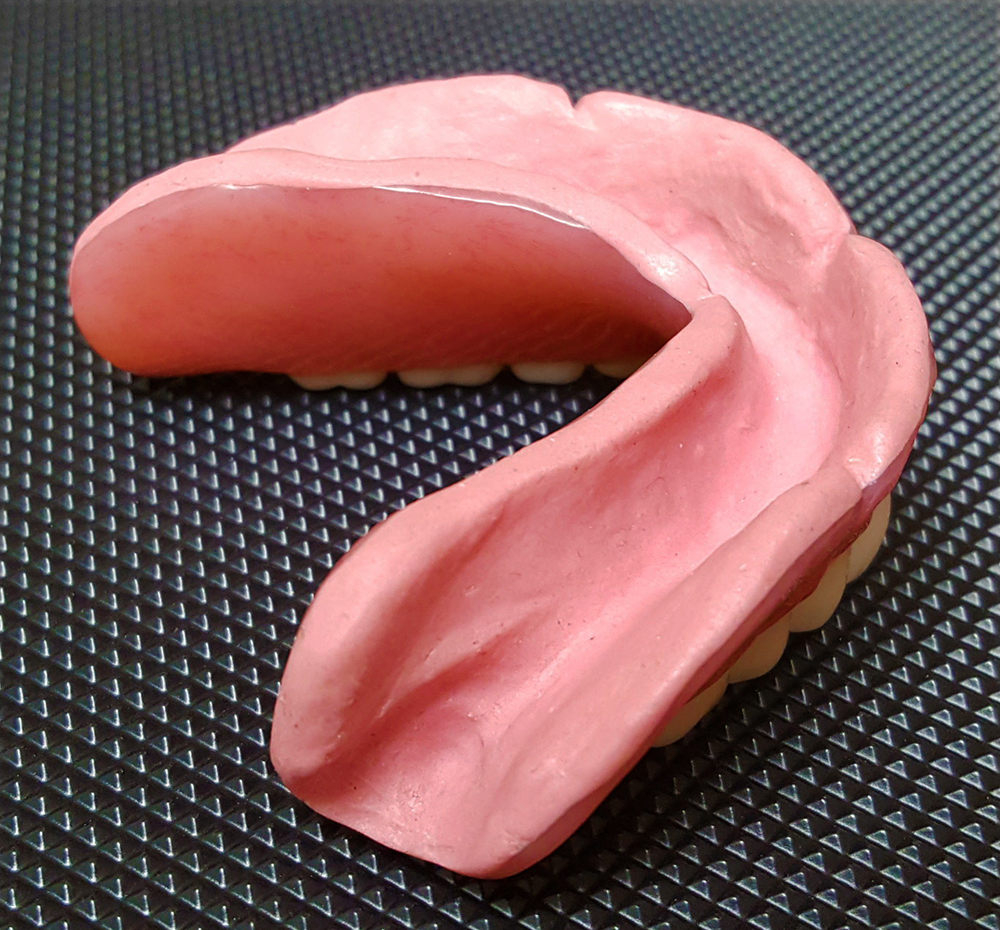What Are Soft Dentures

Soft dentures, also known as flexible dentures or soft-lined dentures, are a type of denture that is designed to be more comfortable and flexible than traditional dentures. They are made with a softer, more pliable material that can conform to the shape of the mouth, providing a more secure and comfortable fit.
Traditional dentures are made with a hard, rigid material that can sometimes cause discomfort and irritation, especially for people with sensitive gums or teeth. Soft dentures, on the other hand, are made with a flexible material that can absorb some of the shock and pressure of chewing, making them a more comfortable option for many people.
One of the main benefits of soft dentures is that they can be more comfortable to wear, especially for people who have experienced discomfort or pain with traditional dentures. They can also be more secure, as the flexible material can conform to the shape of the mouth and provide a tighter fit.
Soft dentures are often recommended for people who have:
- Sensitive gums or teeth
- Irritation or inflammation of the mouth
- Difficulty chewing or speaking with traditional dentures
- A history of denture-related discomfort or pain
There are several types of soft dentures available, including:
- Flexible partial dentures: These are used to replace one or more missing teeth and are made with a flexible material that can be attached to adjacent teeth.
- Soft-lined full dentures: These are used to replace all of the teeth in the upper or lower jaw and have a soft, flexible lining that can conform to the shape of the mouth.
- Denture relines: These are used to reline existing dentures with a soft, flexible material to make them more comfortable and secure.
Soft dentures can be made with a variety of materials, including:
- Nylon: A flexible, durable material that is often used for partial dentures.
- Polyethylene: A soft, flexible material that is often used for full dentures.
- Silicone: A flexible, comfortable material that is often used for denture relines.
Overall, soft dentures can be a comfortable and secure option for people who have experienced discomfort or pain with traditional dentures. They can be customized to fit individual needs and preferences, and can be made with a variety of materials to suit different budgets and lifestyles.
How Soft Dentures Are Made
Soft dentures are typically made using a combination of digital and manual techniques. The process begins with an impression of the mouth, which is used to create a model of the teeth and gums. The model is then used to design and manufacture the denture, using a combination of computer-aided design (CAD) software and manual crafting techniques.
The denture is typically made with a combination of materials, including a rigid base material and a softer, more flexible material for the lining. The rigid base material provides stability and support, while the softer material provides comfort and flexibility.
Once the denture is manufactured, it is tried in the mouth to ensure a proper fit and make any necessary adjustments. The denture is then finalized and delivered to the patient, along with instructions for care and maintenance.
Benefits of Soft Dentures
Soft dentures have several benefits, including:
- Improved comfort: Soft dentures can be more comfortable to wear than traditional dentures, especially for people with sensitive gums or teeth.
- Increased security: Soft dentures can be more secure than traditional dentures, as the flexible material can conform to the shape of the mouth and provide a tighter fit.
- Easier to wear: Soft dentures can be easier to wear than traditional dentures, as they are more flexible and can absorb some of the shock and pressure of chewing.
- Customizable: Soft dentures can be customized to fit individual needs and preferences, using a variety of materials and techniques.
Potential Drawbacks of Soft Dentures
While soft dentures have several benefits, they also have some potential drawbacks, including:
- Higher cost: Soft dentures can be more expensive than traditional dentures, especially for high-end or custom models.
- Limited durability: Soft dentures may not be as durable as traditional dentures, as the flexible material can wear down over time.
- Requires more maintenance: Soft dentures may require more maintenance than traditional dentures, as the flexible material can be more prone to staining and damage.
- Clean the denture regularly with a soft-bristled toothbrush and mild soap.
- Soak the denture in a denture cleaner or mouthwash to remove stains and bacteria.
- Avoid using harsh chemicals or abrasive materials, as these can damage the flexible material.
- Store the denture in a protective case when not in use to prevent damage or loss.
Conclusion
Soft dentures can be a comfortable and secure option for people who have experienced discomfort or pain with traditional dentures. They are made with a softer, more flexible material that can conform to the shape of the mouth, providing a more secure and comfortable fit. While they have several benefits, they also have some potential drawbacks, including higher cost and limited durability. With proper care and maintenance, soft dentures can be a valuable investment for people who want to improve their oral health and overall quality of life.
What are soft dentures made of?
+Soft dentures are made with a variety of materials, including nylon, polyethylene, and silicone. The specific material used will depend on the individual needs and preferences of the patient.
How long do soft dentures last?
+The lifespan of soft dentures will depend on several factors, including the quality of the materials used, the oral health of the patient, and the level of care and maintenance provided. On average, soft dentures can last for several years with proper care.
Can soft dentures be adjusted or repaired?
+Yes, soft dentures can be adjusted or repaired as needed. The dentist or prosthodontist can make adjustments to the fit or repair any damage to the denture.

